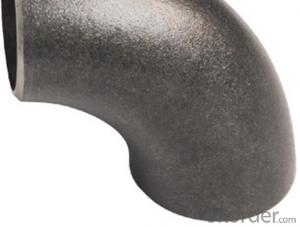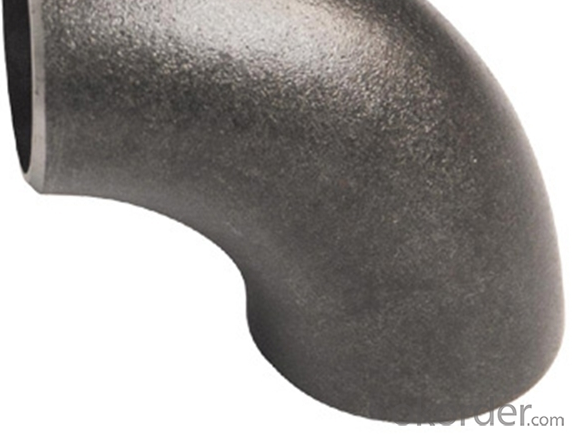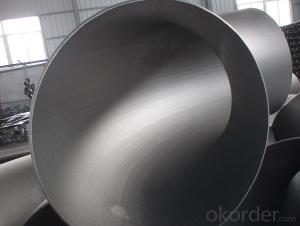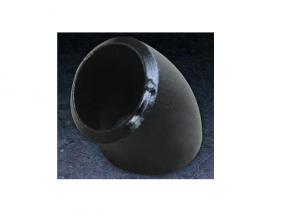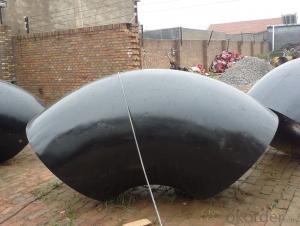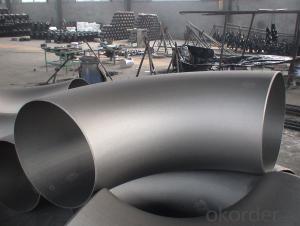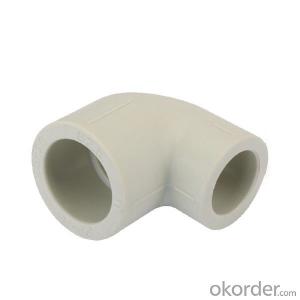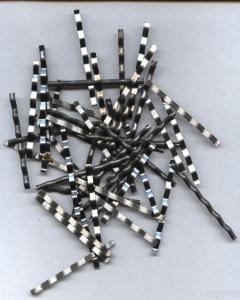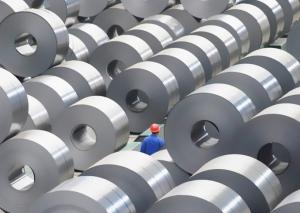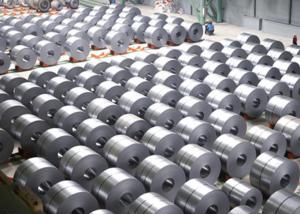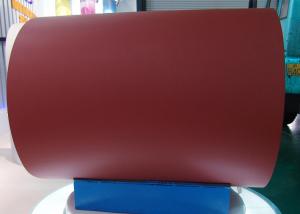Carbon steel pipe fittings elbow,with best quality
- Loading Port:
- Tianjin
- Payment Terms:
- TT OR LC
- Min Order Qty:
- 100 kg
- Supply Capability:
- 10000 kg/month
OKorder Service Pledge
OKorder Financial Service
You Might Also Like
Carbon steel pipe fittings elbow ,with best quality
Std:ASME B16.9
Materials: SS,CS,AS
Size: 1/2''-72''
Cert.: API,ISO,CE,BV
Product | 90 degree elbow |
Size range | 1/2"-24" are made by seamless pipes, above up to 72" are made by welded pipes |
Thickness | SCH20 SCH40 STD SCH60 SCHXS SCH80 SCH160 SCHXXS etc are available |
Angle&Radius | 90 degree, r=1.5d (long radius) |
Standards | ASTMA234,ASTM A420,ANSI B16.9/B16.28/B16.25,ASME B16.9, |
Materials | stainless steel/carbon steel/aloy steel |
Connection | BW,SW,TH |
Surface | Stainless steel elbow:Polishing, Sand-blasting Carbon/Alloy steel elbow: Black painting,varnish paint, anti rust oil, hot galvanized, cold galvanized, 3PE,etc. |
Application | Petroleum, chemical, power, gas, metallurgy, shipbuilding, construction, etc |
Package | Plastic film, wooden cases ,wooden pallet, or according to customers' request |
Certificate | API, and ISO9001:2000 Certificates,CE,BV, etc. |
Capacity | 50000tons/year |
Advantages | 1.Reasonable price with excellent quality |
Port of loading | Xingang (Tianjin) port |
Payment Terms | 30% down payment, the balance 70% T/T before the shipment Or L/C at sight. |
Delivery Time | 7-30 days, according to the order quantity |
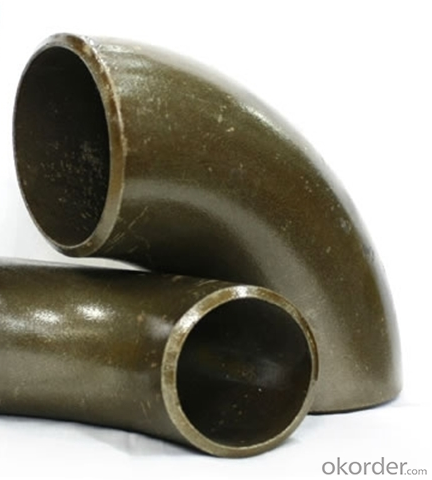
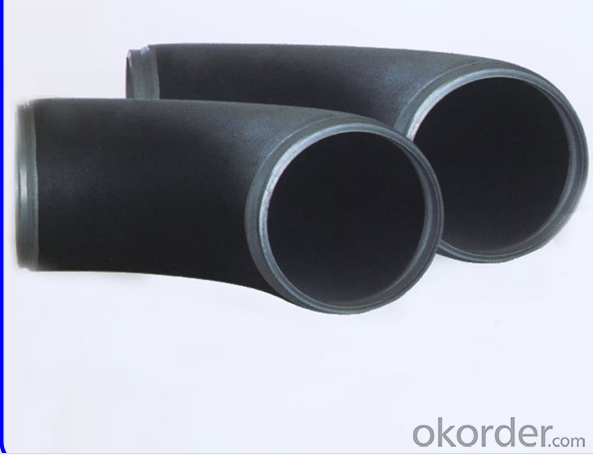
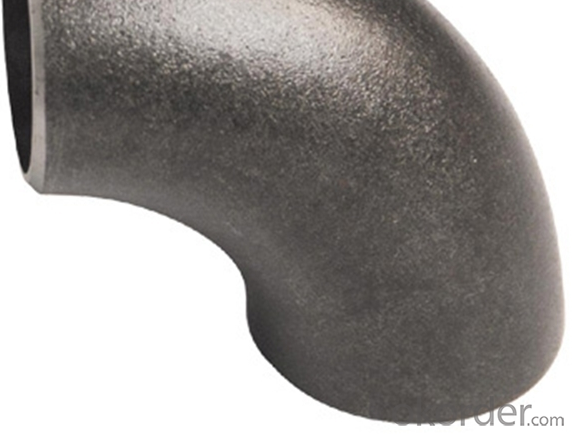
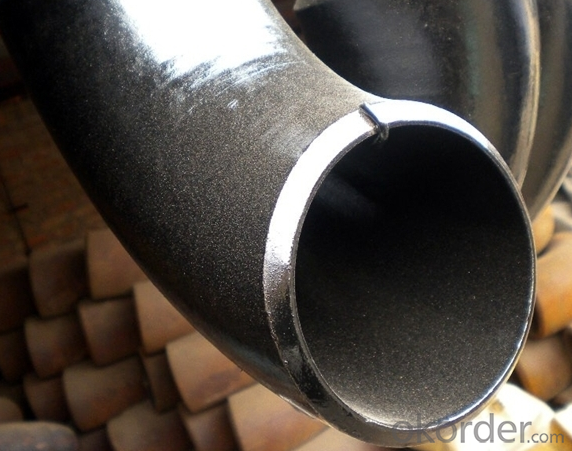
CNBM International Corporation (CNBM International) is the most important trading platform of CNBM Group Corporation, a state-owned company under the direct supervision of State-owned Assets Supervision and Administration Commission of the State Council.
CNBM International is highly recognized by its business partners and clients all over the world and has obtained rapid development under the spirit of win-win. We will carry on the mutual beneficial, innovative and revolutionary trading structure as we did before, create value for our employees, share holders and clients and benefit the whole society in our future development.
- Q: What are the different types of steel wire products?
- The different types of steel wire products include galvanized wire, stainless steel wire, spring wire, barbed wire, wire ropes, and wire mesh.
- Q: What are the different grades of steel and their respective applications?
- There are several grades of steel, each with unique properties and applications. Some common grades include carbon steel, which is widely used in construction and manufacturing; stainless steel, which is resistant to corrosion and commonly used in kitchen appliances and medical equipment; tool steel, which is known for its high hardness and used in cutting tools; and alloy steel, which contains different elements to enhance specific properties and is used in automotive and aerospace industries.
- Q: How is steel used in the agricultural industry?
- Steel is used in the agricultural industry for various purposes such as constructing buildings, barns, and fences, manufacturing equipment like tractors and harvesters, and creating storage containers for crops and livestock.
- Q: What are the uses of steel in the manufacturing of household appliances?
- Steel is commonly used in the manufacturing of household appliances due to its durability, strength, and resistance to corrosion. It is used in various components like the frames, bodies, and panels of appliances such as refrigerators, ovens, dishwashers, and washing machines. Steel provides stability and support to the appliances, ensuring their longevity and safety. Additionally, steel's ability to withstand high temperatures makes it ideal for appliances that require heat, such as stovetops and ovens.
- Q: How do steel products contribute to the mining and excavation industry?
- Steel products play a crucial role in the mining and excavation industry by providing essential equipment and infrastructure. From drill bits and cutting tools to conveyor belts and structural support systems, steel products are used extensively in various mining operations. The strength, durability, and resistance to corrosion of steel make it ideal for withstanding the demanding conditions encountered in mines and excavation sites. Additionally, steel is also used to manufacture machinery and vehicles needed for mining activities, such as excavators, bulldozers, and trucks. Overall, steel products are essential for the efficiency and safety of mining and excavation operations.
- Q: How is steel used in the construction of wastewater treatment plants?
- Steel is commonly used in the construction of wastewater treatment plants due to its durability, strength, and corrosion resistance. It is used for various structural elements such as tanks, pipes, and supports, ensuring the longevity and functionality of the facility. Additionally, steel can be easily fabricated and assembled, allowing for efficient construction and maintenance of wastewater treatment plants.
- Q: What are the applications of steel in the petrochemical industry?
- Steel is widely used in the petrochemical industry due to its excellent mechanical properties, corrosion resistance, and high strength-to-weight ratio. It is utilized in the construction of storage tanks, piping systems, and process equipment such as heat exchangers and reactors. Additionally, steel is employed in the fabrication of offshore platforms, refineries, and petrochemical plants, providing structural support and ensuring the integrity and safety of these facilities.
- Q: What are the common uses of steel in everyday life?
- Steel is widely used in everyday life for various purposes. It is commonly used in the construction industry for buildings, bridges, and infrastructure due to its strength and durability. Steel is also used in the manufacturing of automobiles, appliances, and machinery, as it provides the necessary strength and rigidity. Additionally, steel is used in the production of household items such as cutlery, utensils, and tools. Its versatility and reliability make it an essential material in numerous applications, making our lives more convenient and efficient.
- Q: What are the different types of steel sheets and their uses in the construction of prefabricated buildings?
- There are several types of steel sheets used in the construction of prefabricated buildings. One common type is hot-rolled steel sheets, which are known for their strength and durability. These sheets are often used in the construction of structural components such as beams, columns, and trusses. Another type is cold-rolled steel sheets, which are typically thinner and more precise in dimension. They are commonly used for cladding and roofing purposes. Galvanized steel sheets are coated with a layer of zinc to enhance their resistance to corrosion, making them suitable for outdoor applications. Lastly, stainless steel sheets are highly resistant to rust and corrosion, making them ideal for areas with high moisture or chemical exposure. These sheets are often used in kitchens, bathrooms, and other areas that require a hygienic and durable surface. Overall, the different types of steel sheets serve various purposes in the construction of prefabricated buildings, ensuring structural integrity, durability, and aesthetics.
- Q: What are the applications of steel in the mining industry?
- Steel has numerous applications in the mining industry due to its high strength, durability, and resistance to corrosion. It is commonly used for constructing mining equipment such as drills, excavators, and crushers, as well as for reinforcing structures such as mine shafts and tunnels. Steel is also utilized in the production of pipes, tanks, and conveyor belts, providing a reliable and efficient means of transporting materials within mining operations. Additionally, steel is employed in the construction of mine buildings, safety barriers, and support structures, ensuring the safety and stability of mining sites.
Send your message to us
Carbon steel pipe fittings elbow,with best quality
- Loading Port:
- Tianjin
- Payment Terms:
- TT OR LC
- Min Order Qty:
- 100 kg
- Supply Capability:
- 10000 kg/month
OKorder Service Pledge
OKorder Financial Service
Similar products
Hot products
Hot Searches
Related keywords
